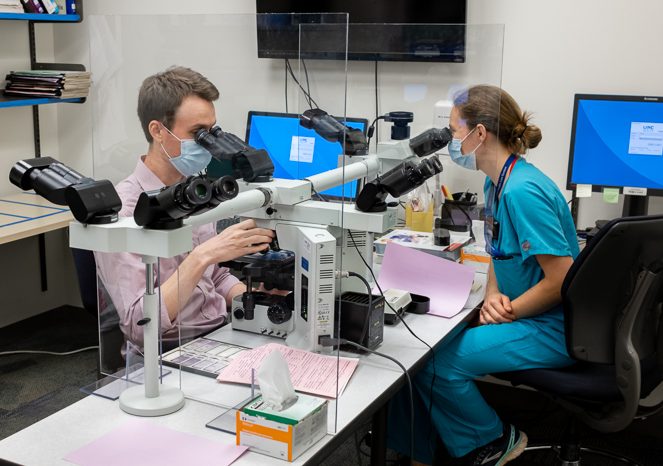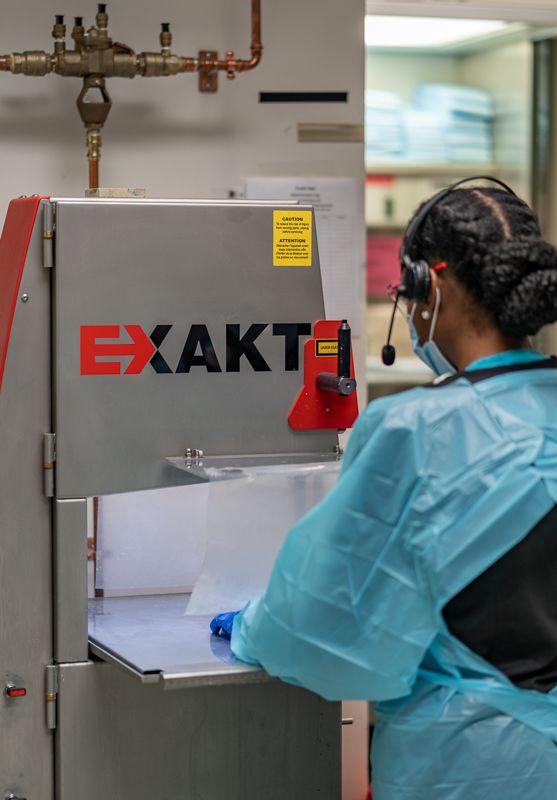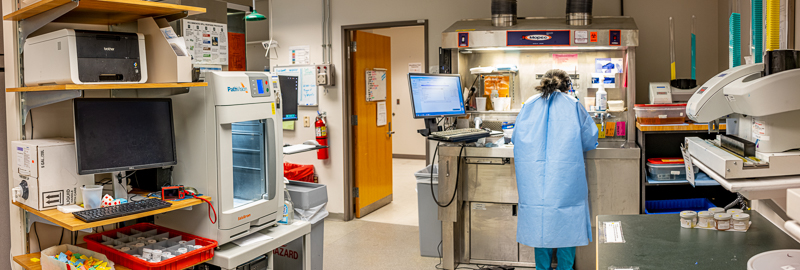Research Opportunities
 Pathology residents are encouraged, but not required, to pursue research projects as part of their training. It is the Department’s philosophy that rigorous laboratory research teaches problem-solving skills in science and technology that are important to both hospital-based diagnostic pathologists and academic pathologists.
Pathology residents are encouraged, but not required, to pursue research projects as part of their training. It is the Department’s philosophy that rigorous laboratory research teaches problem-solving skills in science and technology that are important to both hospital-based diagnostic pathologists and academic pathologists.
Pathology residents interested in a research-focused career in academia will find a wealth of opportunities at UNC. Trainees with an interest in research find enthusiastic support from the faculty and Program, including help in identifying research mentors within the medical center and in structuring a research career path. Residents may choose to do research for their elective rotations, permitting them to acquire substantial research experience during their residency training. UNC has a very successful, inter-disciplinary Physician Scientist Training Program that recruits from all departments in the School of Medicine. Please see this link for more details: https://www.med.unc.edu/pstp/
 Research can be approached as either a part-time or full-time endeavor, depending on the resident’s interest. Projects can be undertaken while the resident is rotating through a particular service, or during a particular elective, and include activities such as publishing a case report, case series, or evaluating a new laboratory test or instrument. Residents may embark on research projects solely within the Department or as joint ventures with investigators in other departments within the medical center.
Research can be approached as either a part-time or full-time endeavor, depending on the resident’s interest. Projects can be undertaken while the resident is rotating through a particular service, or during a particular elective, and include activities such as publishing a case report, case series, or evaluating a new laboratory test or instrument. Residents may embark on research projects solely within the Department or as joint ventures with investigators in other departments within the medical center.
Post-residency Clinical Fellowship Training Programs at UNC offer a wide range of accredited fellowships in specialized areas of anatomic and clinical pathology. UNC residents are given preferential consideration for these post-residency fellowship opportunities, which span the broad spectrum of subspecialty pathology.
The UNC Department of Pathology and Laboratory Medicine ranks nationally among the top departments of pathology in regards to extramural research funding, and this is reflected in the breadth and depth of research opportunities available to residents. Major research themes within the Department include cardiovascular biology, thrombosis and hemostasis; carcinogenesis, mutagenesis and progenitor-cell research; infectious diseases, immunology, protease inhibitors and drug development; molecular genetic pathology, nephropathology, and neuropathology. Additional information on individual faculty members and their research interests is available online.

